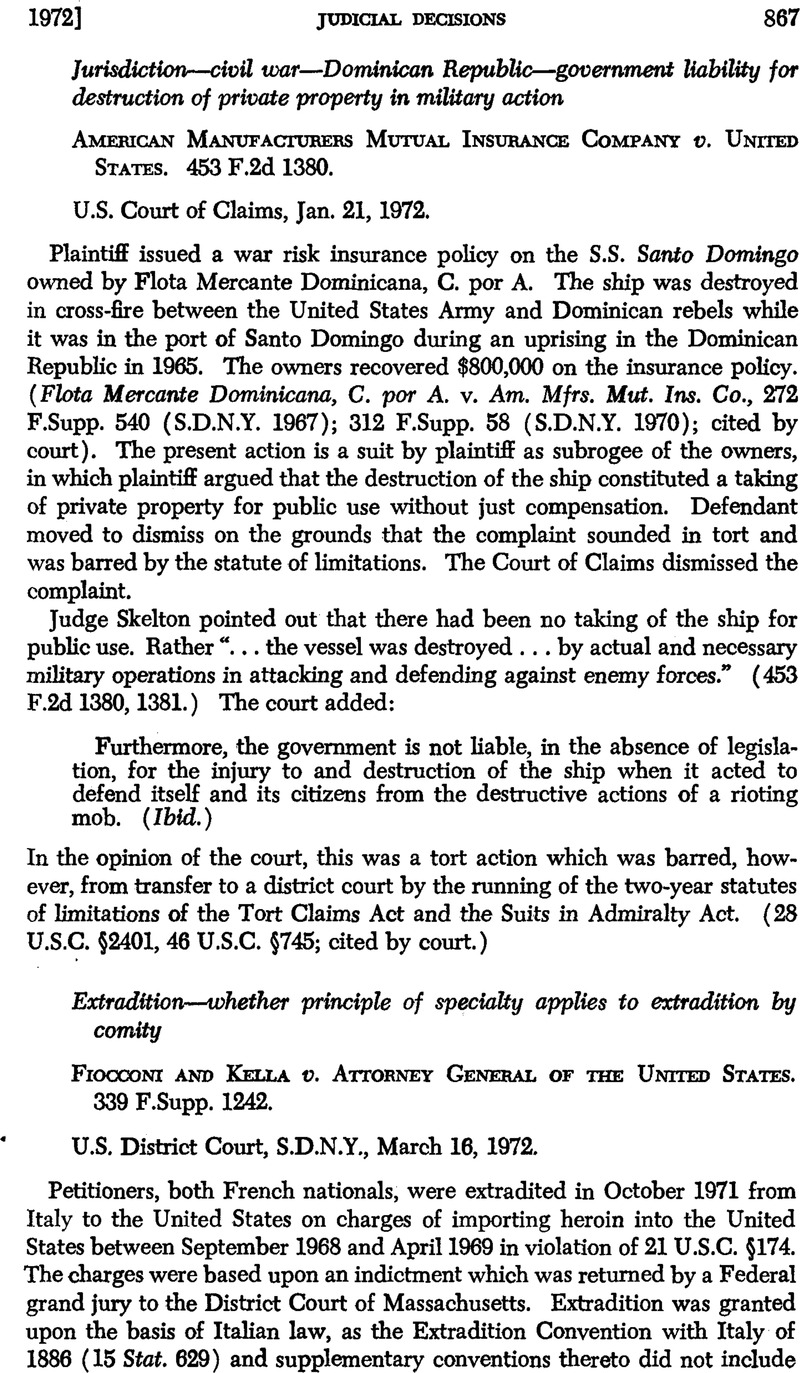No CrossRef data available.
Published online by Cambridge University Press: 28 March 2017

1 “§§173 and 174 were repealed, effective May 1, 1971, by §1101 (a)(2) of the Comprehensive Drug Abuse Prevention and Control Act of 1970, Pub.L. No. 91–513, 84 Stat. 1291, but prosecutions for violations which occurred before that date were not affected. Pub.L. No. 91–513, §1103(a), 84 Stat. 1294.” Footnote by court. Other footnotes renumbered or omitted per se.
2 “Appendix for Appellant at 11a, 13a; Appendix for Appellee at la.” Footnote by court.
3 The Paroutian Case is discussed in 6 Whiteman, Digest of International Law at 1101, and it is stated there that “[e]xtradition was granted [by Lebanon] as an act of comity.” With regard to the change in charges after Paroutian had been surrendered to the United States and his objection to trial thereon, Whiteman continues: “Later at the trial Paroutian raised the objection that he was being tried for an offense other than that for which he was surrendered and that this was contrary to article 7 of the United States-French Extradition Convention of 1901 [actually 1909] (previously applicable to Lebanon) under which he claimed he was surrendered. In response to inquiry from the Department of State, the American Embassy at Beirut reported that the Lebanese Attorney General stated that the decision to surrender Paroutian was made after study of the documents supplied by the United States which satisfied Lebanon that there was sufficient cause that Paroutian be tried and that extradition was granted on the basis of the Lebanese code on the principle of comity without reference to any extradition convention and without specifying conspiracy. The objection of Paroutian was subsequently overruled.’’ (Ibid.)
It may be added that the 1924 Convention between the United States and France Relative to Rights in Syria and The Lebanon (43 Stat. 1821) provided in Article 7 as follows: “Pending the conclusion of special extradition agreements, the extradition treaties at present in force between foreign Powers and the Mandatory shall apply within the territory of Syria and the Lebanon.” Even if the extradition treaties between France and the United States bound the independent state of Lebanon by succession, there would apparently have been no basis for extradition for the offense of traffic in narcotics, conspiracy to engage in such an offense, or variations on such an offense, as narcotics offenses were not listed in the 1909 Convention (37 Stat. 1526). (Ed. note)